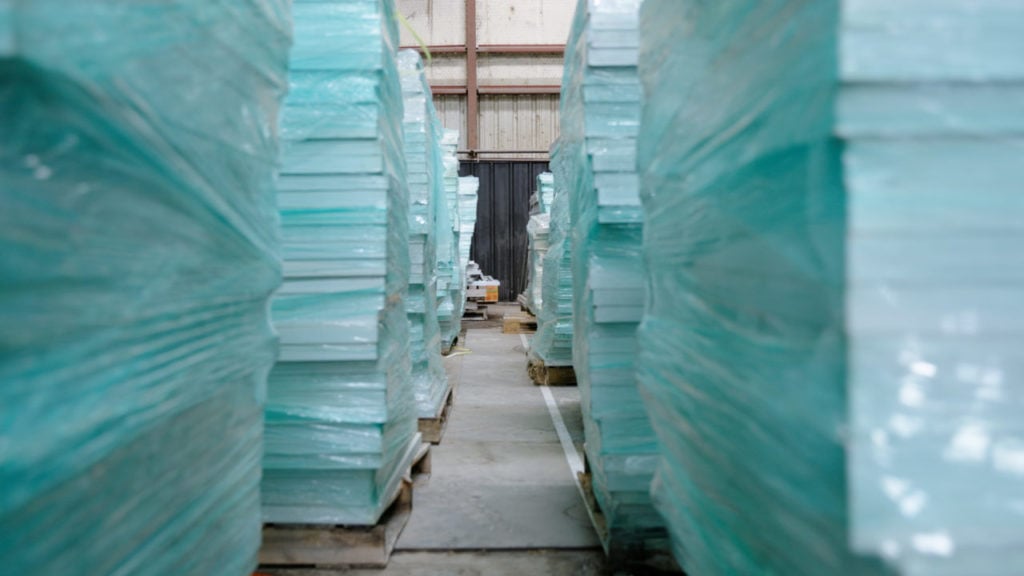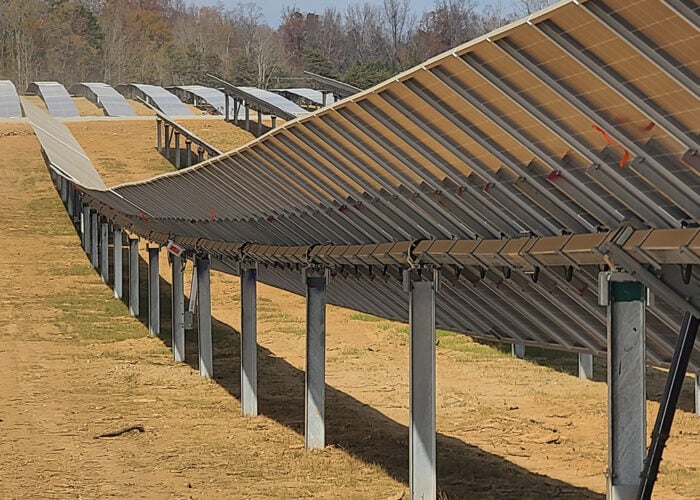
In 2022, recyclable materials from end-of-life (EOL) solar panels were worth around US$170 million globally. By 2030, according to research from Rystad Energy, global recyclable PV materials will be worth in excess of US$2.7 billion, a fifteenfold increase. By the time the global net zero alarm clock goes off in 2050, the value of these materials is forecast to be over US$80 billion.
As the PV industry reckons with its social and environmental impact and the byproducts of its processes, beyond the near-term questions over provenance and manufacturing ethics, concerns at the horizon of a module’s lifespan are coming more and more into focus.
Unlock unlimited access for 12 whole months of distinctive global analysis
Photovoltaics International is now included.
- Regular insight and analysis of the industry’s biggest developments
- In-depth interviews with the industry’s leading figures
- Unlimited digital access to the PV Tech Power journal catalogue
- Unlimited digital access to the Photovoltaics International journal catalogue
- Access to more than 1,000 technical papers
- Discounts on Solar Media’s portfolio of events, in-person and virtual
The average lifespan of a solar panel is around 25 years; the fleets of modules that were installed in the 2000s are close to reaching the end of their lives and each year will bring a more-or-less exponential increase in retiring panels.
The world has over 1TW of PV capacity installed via billions of panels and SolarPower Europe predicts that that capacity will more than double by 2025 as policies like the Inflation Reduction Act (IRA) and Green Deal Industrial Plan take hold, not to mention smaller markets and China’s continued, vast solar expansion.
Government PV EOL and recycling programmes around the world are dragging their feet. Europe is the only place where solar EOL policies really exist, included in the Waste Electrical and Electronic Equipment (WEEE) programme which came into law in 2003 and enacted by member-based organisation PV Cycle. And whilst WEEE may be a good baseline, Suvi Sharma, CEO and founder of US-based solar recycling company Solarcycle, told PV Tech Premium that the process in Europe calls only for recycling by 85% weight: “If you take the aluminium frame off and some of the cables off and get the copper out of there, and you just grind and crush the rest into some kind of asphalt mixture, you have complied with EU regulation.”
It’s not a comprehensive, specialised or thoughtful recycling process.
A Recycling Ecosystem?
Solarcycle specialises in PV recycling with a view to establishing a circular solar economy in the US and, ultimately, worldwide. The company recently received US$30 million in Series A funding to expand its capacity and capabilities at its Texas facility.
“It’s forecast that by the end of the decade there’ll be over 10 billion panels,” Sharma said to PV Tech Premium. “Even 1% of that coming offline in a given year, that’s 100 million panels.” Scaling operations will be key to dealing with that volume, and the possible emergence of a circular solar economy, but in the face of an arid legislative landscape the only incentives are coming from the industry itself.
Sharma said that Solarcycle’s strategy is to work with leading US asset owners – SunRun, Silicon Ranch for example – to commit them to their long-term recycling programme through strategic partnerships. PV Tech has previously explored the boosted value both for finances and ESG that long-term partnerships can bring for companies.
In comments to PV Tech Premium, chief product officer at US PV manufacturer First Solar, Pat Buehler, said that their in-house thin film recycling programme runs on a similar premise.
“We are fortunate to work with customers that share our values and principles, and that includes understanding that recycling is the right thing to do,” Buehler said. “We offer Recycling Service Agreements to all our customers, and we consistently see demand for our recycling services continue to grow.”
First Solar was one of the first manufacturers to factor recycling into its operations as far back as 2005 and has since shipped over 50GW worth of modules, Buehler said to PV Tech Premium. These partnerships and established trends are important to fostering a recycling ‘culture’ and norm in the industry, particularly regarding pipeline or future projects which can have recycling plans and agreements baked into them from conception.
Companies that are willing to spend more to back up their ESG credentials are really important, but the issues of scale and incentive still stand to be reckoned with. First Solar is a significant US manufacturer with well-established roots and a host of long-term supply deals, but its in-house recycling processes only deal with its own modules and its own segment of the PV market.
Other manufacturers – like Qcells and JinkoSolar – have recycling programmes and technologies as well, once again dealing with their own products. Suvi Sharma explained that some manufacturers who recycle their own panels are “focusing mainly on their own manufacturing yield loss. It’s not this broad recycling infrastructure that has been set up.”
These manufacturers are doing a good thing, of course, but Sharma said that the difference between them and a dedicated recycling company is “Focus, and core competency. The reason I formed Solarcycle was I believed that the industry needed a dedicated, specialised, comprehensive recycling company to take all of these volumes, develop the technology, the equipment, the processes and raise capital to do it.”
He likened the situation to mobile phones: “You don’t have Apple recycling their own cell phones, you have companies that really specialise in that. I see the same thing happening in the solar industry.”
Scaling up
As mentioned above, the key to being able to responsibly deal with the deluge of modules coming down the pipe is scale. Legislation and incentives are one solution to force, or coax, scale, but it’s almost always slow. Sharma said that he believes that recycling will be able to scale alongside deployments, partly by becoming cost-effective to developers and manufacturers.
“The competition is always landfill. What we’re trying to do in terms of our technology and equipment is to make it so that the cost to recycle with us is a minimal difference [compared with landfill],” he said. “It’s not there today, today there’s a premium to recycle with us, but we’re working to drive down the cost curve and drive up the value curve on the materials we’re getting.”
He continued: “We decided at Solarcycle to focus on very advanced recycling. It’s not really ‘go for the gold’, it’s ‘go for the silver’ because that’s what’s [valuable] in the panels.”
Mining the silver from the panels, along with the polysilicon, glass, metal framing, creates a genuinely high value process that can save customers money in the long-term, as the company has goals of feeding recovered materials back into the solar supply chain.
Any type of circular solar supply chain would give far greater security – both in terms of supply and ESG assurances – to companies involved, as traceability is an increasingly prominent focal point for the industry and supply costs and risks would – in theory – diminish considerably if new panels could be made from decommissioned ones.
The logic goes that, if you achieve enough financial or industry incentive for companies to recycle – either by high-value material recovery or the example set by significant players in an ecosystem – you don’t need to rely on government legislation.
“But those are very helpful in the near-term,” Sharma said, “especially in the next five years because we need to get the volumes going into the recycling facilities.”
“The recycling technology and infrastructure is really a way to make solar more scalable and more sustainable, and get in front of any looming waste problem.”
The next edition of our downstream journal PV Tech Power will feature a deep dive into end-of-life and recycling.






